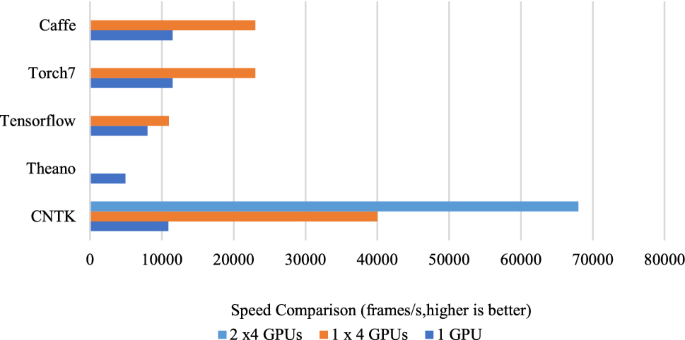
Dr. Timnit Gebru has been a prominent member in the AI-ethics and co-founders of Google. Black in AI, the Distributed Artificial Intelligence Research Institute and her work as an AI ethics scholar was widely recognized. Her work was widely covered by mainstream media including The Economist and Wired. In addition, she was named to a list of the top 50 women in the world by Wired and Forbes.
Google co-founder Dr. timnit gebru
Gebru was fired recently by Google due to an internal dispute about a research paper that she published which criticized Google technology. Gebru's dismissal triggered a new wave within Tech workers who rallied behind her boss. According to reports, Google asked Gebru for the paper's retraction. A group of Google employees signed an open-letter demanding an explanation. After Gebru left the company, the media attention surrounding her firing intensified.
The company has denied the allegation but the dismissal is likely to rekindle anger over the treatment of its employees. Google has been adamant about removing any dissent from its workforce over the past two decades, firing employees who questioned its ethics or advocated diversity. Gebru's termination also triggered a campaign of harassment aimed at the co-founder of Google.

Black in AI was founded by her.
Black inAI was co-founded by Timnit Gebru to increase the visibility and participation of Black people in the field. Her PhD was completed at Stanford Artificial Intelligence Laboratory. During this time, she also co-wrote her thesis which dealt with computer vision. The 2017 LDV Capital Vision Summit was awarded the thesis. Timnit has also worked for Apple, designing circuits. She also has worked as an entrepreneur, and cofounded Black in AI to promote black people in the field.
Since the early days of the organization, Dr. Timnit Gebru has been able to secure funding from major foundations. The MacArthur Foundation donated $3.7 million to her work. The DAIR foundation has a similar approach and will support research based on community needs, rather than the interests of industry. DAIR plans to publish research findings on academic journals and other platforms. DAIR will continue to publish findings in academic journals or other platforms, although it will do so at a slower pace that industry-led companies.
She cofounded Distributed Artificial Intelligence Research Institute
As the founder of the Distributed Artificial Intelligence Research Institute, Timnit Gebru has had a profound impact on artificial intelligence. Her innovative work has already changed the conversation on AI. She is currently serving on the steering committee of the Partnership on AI, a consortium of organizations dedicated to responsible AI development. Her efforts have had an impact on the field.
Gebru quit Google in December 2020 after a dispute over a paper that he had co-authored with his colleagues. Google higher-ups had ordered Gebru to omit his co-authors from a paper that they said was a'mistake'. Gebru refused and threatened to resign. She was fired and later resigned. Google however said that it had accepted Gebru's resignation.

She was a well-respected scholar in AI-ethics.
The sudden firing Timnit Gbru has ignited a storm within Google and in the AI-ethics group. Gebru's firing comes amid growing discord between academia and tech companies. A National Labor Relations Board complaint recently claimed that Google secretly monitored its employees. Google denied the claims and has since appointed Marian Croak, an engineering VP who has no prior experience with responsible AI.
Dr Gebru was an established academic in the AI ethics community. Prior to that, she was involved with research on algorithmic and facial recognition systems. She was an active advocate for diversity in technology companies and co-founded Black in AI. Gebru's unfair dismissal has created a gap within the AI community.
FAQ
How will governments regulate AI
Governments are already regulating AI, but they need to do it better. They must make it clear that citizens can control the way their data is used. A company shouldn't misuse this power to use AI for unethical reasons.
They also need to ensure that we're not creating an unfair playing field between different types of businesses. If you are a small business owner and want to use AI to run your business, you should be allowed to do so without being restricted by big companies.
What can AI do?
AI has two main uses:
* Predictions - AI systems can accurately predict future events. AI can help a self-driving automobile identify traffic lights so it can stop at the red ones.
* Decision making-AI systems can make our decisions. For example, your phone can recognize faces and suggest friends call.
Where did AI originate?
In 1950, Alan Turing proposed a test to determine if intelligent machines could be created. He stated that intelligent machines could trick people into believing they are talking to another person.
John McCarthy took the idea up and wrote an essay entitled "Can Machines think?" McCarthy wrote an essay entitled "Can machines think?" in 1956. He described the problems facing AI researchers in this book and suggested possible solutions.
How does AI impact the workplace
It will revolutionize the way we work. We will be able automate repetitive jobs, allowing employees to focus on higher-value tasks.
It will improve customer services and enable businesses to deliver better products.
It will allow us to predict future trends and opportunities.
It will enable companies to gain a competitive disadvantage over their competitors.
Companies that fail AI adoption are likely to fall behind.
Statistics
- A 2021 Pew Research survey revealed that 37 percent of respondents who are more concerned than excited about AI had concerns including job loss, privacy, and AI's potential to “surpass human skills.” (builtin.com)
- The company's AI team trained an image recognition model to 85 percent accuracy using billions of public Instagram photos tagged with hashtags. (builtin.com)
- While all of it is still what seems like a far way off, the future of this technology presents a Catch-22, able to solve the world's problems and likely to power all the A.I. systems on earth, but also incredibly dangerous in the wrong hands. (forbes.com)
- By using BrainBox AI, commercial buildings can reduce total energy costs by 25% and improves occupant comfort by 60%. (analyticsinsight.net)
- That's as many of us that have been in that AI space would say, it's about 70 or 80 percent of the work. (finra.org)
External Links
How To
How to set Siri up to talk when charging
Siri can do many different things, but Siri cannot speak back. This is because there is no microphone built into your iPhone. If you want Siri to respond back to you, you must use another method such as Bluetooth.
Here's how Siri can speak while charging.
-
Under "When Using Assistive touch", select "Speak when locked"
-
To activate Siri press twice the home button.
-
Siri can be asked to speak.
-
Say, "Hey Siri."
-
Speak "OK"
-
Tell me, "Tell Me Something Interesting!"
-
Speak "I'm bored", "Play some music,"" Call my friend," "Remind us about," "Take a photo," "Set a timer,"," Check out," etc.
-
Speak "Done."
-
If you would like to say "Thanks",
-
If you're using an iPhone X/XS/XS, then remove the battery case.
-
Insert the battery.
-
Assemble the iPhone again.
-
Connect the iPhone and iTunes
-
Sync your iPhone.
-
Set the "Use toggle" switch to On